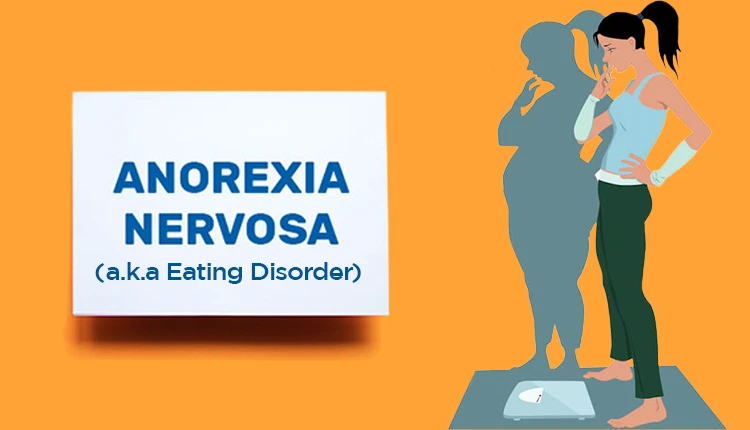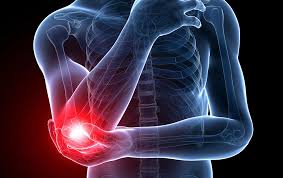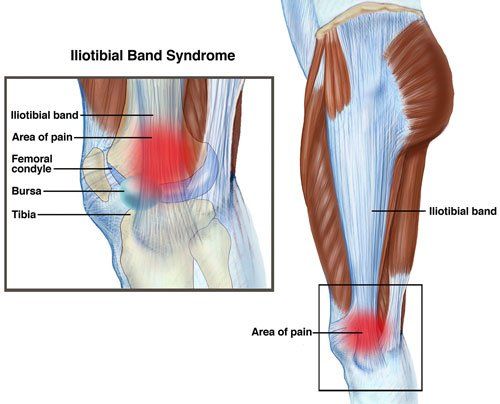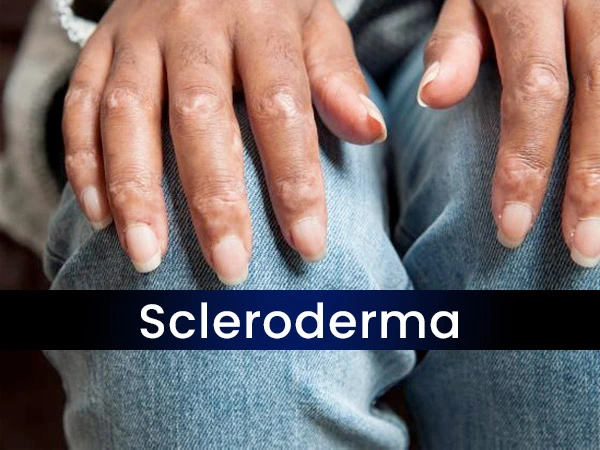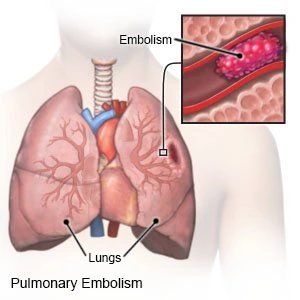Anorexia nervosa
What is Anorexia nervosa?
Anorexia nervosa, also known as anorexia, is a type of eating disease characterized by an abnormally low body weight, an intense dread of gaining weight, and a distorted perception of weight. Anorexics place a high value on controlling their weight and shape, putting in extreme efforts that considerably disrupt their lives.
People suffering from anorexia generally severely restrict their food intake to avoid or maintain weight loss. They may limit their calorie consumption by vomiting after eating or abusing laxatives, diet supplements, diuretics, or enemas. They may also attempt to lose weight by overexercising. No matter how much weight is lost, the person is still afraid of increasing weight.
Anorexia isn’t just about dieting. It’s a dangerous and sometimes life-threatening method to deal with emotional issues. When you suffer from anorexia, you frequently associate thinness with self-worth.
Anorexia, like other eating disorders, has the potential to take over your life and be extremely difficult to conquer. However, with treatment, you can rediscover your identity, resume healthier eating habits, and reverse some of anorexia’s severe complications.
Epidemiology
Anorexia nervosa is more familiar in women than men. Onset is late youth and early maturity. The lifetime majority is 0.3% to 1% (European analyses have shown a majority of 2% to 4%), irrespective of culture, ethnicity, and race. Risk factors for eating conditions involve female sex, childhood obesity, mood disturbances, sexual abuse, personality traits (impulsivity and perfectionism), or weight-related problems from family or peer backgrounds.
Types of anorexia nervosa
There are two varieties of anorexia nervosa:
Restriction of food intake: emphasizes the regulation of food input.
Binge eating and purging: contains engaging in periods of binge eating, observed by compensatory behaviors like overexercising, self-induced vomiting, or use of laxatives, diuretics, or enemas.
Restriction of food intake
Patients with the restricting subtype of anorexia nervosa tend to severely decrease their energy input or restrict the variety of food they will eat. The signs can be various in per patient, but may contain:
- restricting specific varieties of food, like carbohydrates or high-fat foods
- obsessively measuring kilojoule intake
- skipping meals
- overly exercising.
Binge eating and purging
Patients with the binge eating and purging subtype of anorexia nervosa have equal symptoms to the restricting type, but also immerse in behaviors that contain:
Binge eating: eating subjectively big amounts of food in a short period and feeling distressed and feeling a loss of control.
Compensatory behaviors: like self-induced vomiting or using laxatives, enemas, or diuretics.
This type of anorexia nervosa shares few similarities to bulimia nervosa. Patients with anorexia nervosa, yet, tend to extremely emphasize weight control by limiting energy input, instead of primarily via purging behaviors.
In extra, patients with this variety of anorexia nervosa have a lower body weight, whereas a patient with bulimia nervosa may feel an irregular body weight nearer to the healthy weight range for their age and height.
Symptoms of Anorexia nervosa
The physical signs and symptoms of anorexia nervosa are connected to hunger. Anorexia also contains emotional and behavioral problems including an unrealistic perception of body weight and an excessively strong fear of gaining weight or evolving fat.
It may be hard to see signs and symptoms because what is believed a low body weight varies per patient, and few people may not seem excessively thin. Also, patients with anorexia frequently disguise their thinness, eating patterns, or physical issues.
Physical symptoms
Physical signs and symptoms of anorexia may contain:
- Excessive weight loss or not creating desired developmental weight gains
- Thin appearance
- Abnormal blood counts
- Fatigue
- Insomnia
- Dizziness or fainting
- Bluish discoloration of the fingers
- Hair that thins breaks or falls out
- Soft, downy hair surrounds the body
- Absence of menstruation
- Constipation and abdominal pain
- Dry or yellowish skin
- Intolerance of cold
- Uneven heart rhythms
- Low blood pressure
- Dehydration
- Swelling of arms or legs
- Eroded teeth and calluses on the knuckles from induced vomiting
Some patients who have anorexia binge and purge, equal to people who have bulimia. But patients with anorexia commonly struggle with an abnormally low body weight, while people with bulimia generally are normal to above normal weight.
Emotional and behavioral symptoms
Behavioral symptoms of anorexia may contain trying to lose weight by:
Hardly restricting food input via dieting or fasting
Exercising overly
Bingeing and self-induced vomiting to bring rid of food, which may contain the use of enemas, laxatives, diet aids, or herbal products
Emotional and behavioral signs and symptoms may contain:
Preoccupation with food, which occasionally contains cooking elaborate meals for others but not eating them
Often skipping meals or restricting eat
Denial of hunger or creating reasons for not eating
Eating only a few specific safe foods, generally those low in fat and calories
Assuming frozen meals or eating rituals, like spitting food out after chewing
Not liking to eat in public
Lying regarding how much food has been consumed
Fear of gaining weight that may contain recounted weighing or estimating the body
Regular checking in the mirror for sensed flaws
Complaining regarding being fat or having regions of the body that are fat
Wrapping up in layers of clothing
Flat mood (lack of emotion)
Social withdrawal
Irritability
Insomnia
Decreased interest in sex
Causes of Anorexia nervosa
The actual reason for anorexia is unknown. As with many conditions, it’s likely a mixture of biological, psychological, and environmental elements.
Biological. Although it’s not finally clear which genes are affected, there may be genetic modifications that create some patients at higher risk of creating anorexia. Some patients may have a genetic tendency toward perfectionism, sensitivity, and perseverance all features associated with anorexia.
Psychological. Some patients with anorexia may have obsessive-compulsive personality features that create it easier to attach to strict diets and forgo food despite being starved. They may have a severe aim for perfectionism, which generates them to believe they’re never thin sufficiently. And they may have increased levels of anxiety and engage in restrictive eating to decrease it.
Environmental. Modern Western culture stresses thinness. Success and worth are frequently correlated with being thin. Equivalent pressure may help fuel the desire to be thin, especially among young girls.
Risk factors
Anorexia is more familiar in girls and females. Yet, boys and males have increasingly created eating conditions, which may be related to rising social pressures.
Anorexia is also more familiar among teenagers. Yet, patients of any age can create this eating condition, though it’s infrequent in those over 40. Teens may be more at the chance because of all the modifications their bodies go via during puberty. They may even face raised peer pressure and be more susceptible to criticism or casual remarks regarding weight or body shape.
Certain factors raise the risk of anorexia, involving:
Genetics. Changes in precise genes may place a specific patient at a higher risk of anorexia. Those with a first-degree family a parent, sibling, or kid who had the condition have a much more elevated risk of anorexia.
Dieting and starvation. Dieting is a risk factor for creating an eating condition. There is strong proof that many of the symptoms of anorexia are symptoms of hunger. Starvation involves the brain and influences mood shifts, rigidity in thought, anxiety, and a decrease in appetite. Starvation and weight loss may alter the way the brain functions in vulnerable people, which may perpetuate restrictive eating manners and create it hard to return to normal eating patterns.
Transitions. Whether it’s an unexplored school, home, or job, a relationship separation, or the death or disease of a loved one, the transition can get emotional stress and raise the risk of anorexia.
Differential Diagnosis
- Cancer
- Chronic mesenteric ischemia
- Achalasia
- Malabsorption
- Hyperthyroidism
- Irritable bowel syndrome
- Celiac disease
Diagnosis
If your doctor doubts that you have anorexia nervosa, he or she will generally do several examinations to assist pinpoint a diagnosis, rule out medical reasons for the weight loss, and inspect for any related difficulties.
These examinations and tests commonly contain:
Physical examination. This may contain estimating your height and weight, inspecting your vital signs, like blood pressure, heart rate, and temperature, inspecting your skin and nails for issues, hearing your heart and lungs, and studying your abdomen.
Lab tests. These may contain a complete blood count (CBC) and more-specialized blood examinations to inspect electrolytes and protein as well as the functioning of your liver, kidney, and thyroid. A urinalysis also may be accomplished.
Psychological evaluation. A doctor or mental health specialist will probably ask about your thoughts, feelings, and eating practices. You may also be asked to conduct psychological self-assessment questionnaires.
Other analyses. X-rays may be carried to inspect your bone density, study for stress fractures or broken bones, or inspect for pneumonia or heart issues. Electrocardiograms may be done to examine for heart abnormalities.
Your mental health specialist also may use the diagnostic measures for anorexia in the Diagnostic and Statistical Manual of Mental Disorders (DSM-5), issued by the American Psychiatric Association.
Treatment of Anorexia nervosa
Treatment for anorexia is commonly done using a team method, which contains doctors, mental health professionals, and dietitians, all with experience in eating diseases. Ongoing treatment and nutrition education are highly essential to continued healing.
Here’s a look at what’s generally included in managing patients with anorexia.
Hospitalization and different programs
If your life is in quick danger, you may require treatment in a hospital emergency room for such problems as a heart rhythm disruption, dehydration, electrolyte imbalances, or a psychiatric emergency. Hospitalization may be needed for medical difficulties, extreme psychiatric issues, extreme malnutrition, or continued refusal to eat.
Some clinics specialize in managing patients with eating diseases. They may offer day schedules or residential schedules instead of full hospitalization. Specialized eating condition schedules may propose more-intensive therapy over longer periods.
Medical care
Because of the host of difficulties anorexia reasons, you may require regular monitoring of vital signs, hydration level, and electrolytes, as well as corresponding physical diseases. In extreme cases, patients with anorexia may initially need feeding via a tube that’s put in their nose and goes to the stomach (nasogastric tube).
Care is generally coordinated by a primary care doctor or a mental health specialist, with further professionals included.
Restoring a healthy weight
The first purpose of therapy is to bring back to a healthy weight. You can’t heal from anorexia without returning to a healthy weight and understanding appropriate nutrition. Those included in this process may contain:
Your primary care doctor, who can provide medical treatment and observe your calorie requirements and weight gain
A psychologist or further mental health professional, who can function with you to create behavioral strategies to assist you to return to a healthy weight
A dietitian, who can offer advice to bringing back regular habits of eating, involving providing precise meal plans and calorie needs that assist you to meet your weight purposes
Your family, who will probably be included in assisting you to keep normal eating patterns
Psychotherapy
These varieties of treatment may be useful for anorexia:
Family-based therapy. This is the only evidence-based therapy for teenagers with anorexia. Because the teenager with anorexia is incapable to create good options regarding eating and health while in the grips of this severe disease, this treatment mobilizes parents to assist their kid with re-feeding and weight restoration until the kid can create good options regarding health.
Individual therapy. For grown-ups, cognitive behavioral therapy especially improved cognitive behavioral therapy has been displayed to assist. The main purpose is to normalize eating habits and manners to support weight gain. The second purpose is to assist to alter distorted beliefs and thoughts that keep restrictive eating.
Medications
No drugs are approved to manage anorexia because none have been seen to function very well. Yet, antidepressants or other psychiatric drugs can assist to manage other mental health conditions you may also have, like depression or anxiety.
Treatment challenges in anorexia
One of the greatest challenges in managing anorexia is that the patient may not want therapy. Barriers to therapy may contain:
Assuming you don’t require treatment
Fearing weight gain
Not noticing anorexia as a condition but rather a lifestyle option
Patients with anorexia can heal. Yet, they’re at raised risk of relapse during times of high stress or activating conditions. Ongoing treatment or periodic meetings during times of stress may assist you to remain healthy.
Lifestyle and home remedies
When you have anorexia, it can be hard to take care of yourself correctly. In extra to professional therapy, follow these actions:
Stick to your treatment program. Don’t skip therapy sessions and attempt not to stray from meal programs, even if they create you uneasy.
Speak to your doctor regarding proper vitamin and mineral supplements. If you’re not eating well, the possibilities are your body isn’t obtaining all of the nutrients it requires, like Vitamin D or iron. Yet, obtaining most of your vitamins and minerals from food is generally suggested.
Don’t separate yourself from caring family members and friends who want to visit you and bring healthily. Understand that they have your best welfare at heart.
Fight urges to weigh yourself or see yourself in the mirror often. These may accomplish nothing but fuel your drive to keep unhealthy patterns.
Alternative medicine
Dietary supplements and herbal effects created to stop the appetite or aid in weight loss may be abused by a patient with anorexia. Weight-loss supplements or herbs can have severe side effects and dangerously interact with further drugs. These products do not go via a rigorous review method and may have elements that are not published on the bottle.
Maintain in mind that natural doesn’t always suggest safe. If you use dietary accessories or herbs, consult the possible risks with your doctor.
Anxiety-reducing methods that complement anorexia therapy may raise the sense of well-being and encourage relaxation. Instances of these methods contain massage, yoga, and meditation.
Complications of Anorexia nervosa
Anorexia can have multiple difficulties. At its most harmful, it can be fatal. Death may happen suddenly even when a person is not extremely underweight. This may result from irregular heart rhythms (arrhythmias) or an imbalance of electrolytes minerals like sodium, potassium, and calcium that keep the balance of fluids in your body.
Further difficulties of anorexia contain:
- Anemia
- Heart issues, like mitral valve prolapse, irregular heart rhythms, or heart failure
- Bone loss (osteoporosis), raising the risk of fractures
- Loss of muscle
- In women, the absence of a period
- In men, reduced testosterone
- Gastrointestinal issues, like bloating, constipation, or nausea
- Electrolyte abnormalities, like sodium, low blood potassium, and chloride
Kidney problems
If a patient with anorexia evolves hardly malnourished, every organ in the body can be injured, involving the heart, brain, and kidneys. This injury may not be completely reversible, even when the anorexia is under control.
In extra to the host of physical difficulties, patients with anorexia generally have further mental health diseases as well. They may contain:
- Depression, anxiety, and further mood conditions
- Personality diseases
- Obsessive-compulsive diseases
- Alcohol and substance misuse
- Self-injury, suicidal thoughts, or suicide attempts
How to Prevent Anorexia nervosa?
There’s no guaranteed method to control anorexia nervosa. Primary care physicians (family physicians, pediatricians, and internists) may be in a fine position to recognize early indicators of anorexia and control the growth of full-blown illness. For example, they can ask questions regarding eating habits and happiness with appearance during regular medical meetings.
If you see that a family fellow or friend has low self-esteem, extreme dieting patterns, and dissatisfaction with appearance, consider speaking to him or her regarding these problems. Although you may not be capable to control an eating disease from growing, you can speak regarding healthier behavior or treatment choices.
Prognosis
Remission in Anorexia nervosa (AN) differs. Three-fourths of people managed in out-patient settings remit within 5 years and the exact percentage experience intermediate-good outcomes (involving weight gain). Relapse is more familiar in persons who are more senior with a long time of condition or lower body fat/weight at the end of therapy, have co-morbid psychiatric conditions or obtain treatment outside of a technical clinic. Persons who conduct partial remission frequently produce another state of eating condition (ex. bulimia nervosa or unknown eating condition).
All-cause mortality is more prominent in AN corresponded to the rest of the people. It has one of the most elevated mortality rates of all eating conditions due to substance abuse, medical difficulties, and suicide. People with Anorexia nervosa (AN) have raised rates of suicide and this accounts for 25% of deaths associated.
FAQ
Can anorexia be fully cured?
You can’t heal from anorexia without returning to a nutritious weight and learning the right nutrition. Those included in this method may include Your primary care doctor, who can deliver medical care and manage your calorie requirements and weight gain.
How long does anorexia last?
In approximately 50% of patients analyzed with anorexia, the disease can stay for 5 years or more. Healing is a gradual method and can bring years. For some, therapy for anorexia can be lifelong.
Can you live a long life with anorexia?
The condition has the most elevated mortality rate of all mental health conditions. As many as 20 percent of the patient who sorrows from anorexia will ultimately die from it. And the longer patient sorrow from anorexia, the more significant their risk of dying evolves.
What percentage of anorexics fully recover?
Analysis indicates that about 46% of anorexia persons completely heal, 33% enhance and 20% stay chronically sick. Similar analysis into bulimia indicates that 45% create a complete recovery, 27% enhance greatly, and 23% sorrow chronically.
Why is anorexia so serious?
People with anorexia also have a deformed self-image of their body and an extreme fear of gaining weight. Anorexia is a severe disease that needs treatment. Severe weight loss in a patient with anorexia can conduct to malnutrition, dangerous health issues, and even death.

